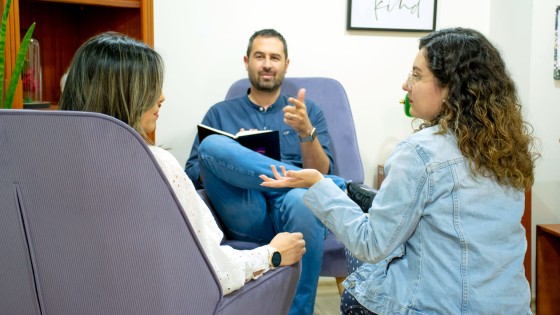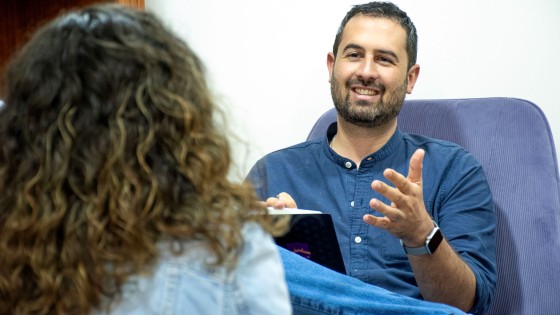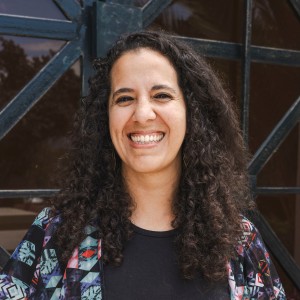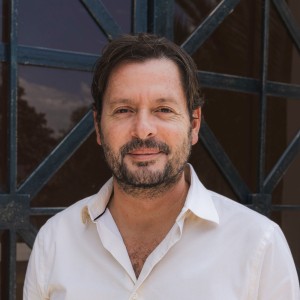Clinical Psychology
Anthropology
The Clinical Psychology career will train professionals with an interdisciplinary profile, with a biopsychosocial approach that consists of integrating biological, emotional, social and behavioral factors in clinical practice. Students will develop skills that will enable them to conduct an adequate clinical interview, evaluate, diagnose, select and apply the best treatment with scientific evidence and professional ethics for different mental health problems in children, adolescents and adults. Graduates in Clinical Psychology will also be able to design, direct and execute promotion and prevention programs in mental health, attend patients in private and multidisciplinary consultation, as well as manage and administer therapeutic centers.
Professional Profile
Professionals in Clinical Psychology have various options in terms of their employability, since they can perform various professional roles such as: treatment in private psychological consultation, in health services of decentralized autonomous governments, in psychological care services in hospitals and health centers.
Similarly, Clinical Psychology graduates can also design and implement psychoeducation and prevention programs on issues related to wellbeing and mental health in educational spaces, communities, at-risk groups, among other spaces. They can play an important role in the Student Counseling Departments of schools and colleges, accompanying students and their families in crisis situations and preventing mental health problems. Finally, they can be part of multidisciplinary research teams on mental health issues and can be involved in teaching and training other professionals. Graduates will be able to access master's or doctoral studies in the area of mental health or related fields.
Professional Field
- Assess and diagnose mental health problems in individuals through observation, clinical interview and psychological testing.
- Apply more efficient theoretical models according to the individual's psychological disorder.
- Provide individual or group counseling services to help individuals achieve more effective personal, social, educational and vocational development and adjustment.
- Design behavior modification programs and coordinate with medical personnel on the best treatment for patients.
- Apply research methods and skills to inform the development and evaluation of psychological treatment programs and programs to improve the quality of life for individuals.
- Utilize evidence-based psychological and behavioral assessments to arrive at a diagnosis of the problem and plan appropriate prevention and/or treatment for the patient.
- Use clear and appropriate communication with patients and other health care professionals.
- Integrate technology in diagnosis and intervention in clinical psychology.
- Work in multidisciplinary teams to achieve effective assessment and treatment according to the mental health problems and needs of their patients.
- To act in society in accordance with the values and code of ethics of the American Psychological Association and the Code of Conduct of the Universidad San Francisco de Quito, both personally, professionally and socially.
- Collaborate with the community by sharing their knowledge and psychological help through the provision of psychological services during their clinical practices.
- Respect cultural, ethnic, racial and individual differences in clinical practice care.
- Assume their limitations of competence and when necessary, seek supervision or refer patients to another health professional.
- Understand the need to integrate other professionals in the integral treatment of patients.
- Recognize the importance of self-care for the clinical psychologist.
Ventajas Competitivas
- Aprenderán a utilizar los modelos teóricos más eficientes y con evidencia científica según el trastorno psicológico del individuo.
- Los estudiantes accederán a clases de prácticas y laboratorios desde el tercer semestre.
- Las prácticas se realizarán con pacientes simulados, realidad virtual, observación clínica. Una vez desarrolladas las habilidades clínicas necesarias, atenderán a pacientes mediante prácticas clínicas en hospitales o centros de salud mental, con el apoyo de un tutor y supervisor.
- Desde el inicio de la carrera se trabajará en la importancia del autocuidado del psicólogo clínico.
- Antes de graduarse, en la clase de proyecto integrador contarán con estrategias y talleres sobre como manejar su propia consulta privada.
Academic Faculty











